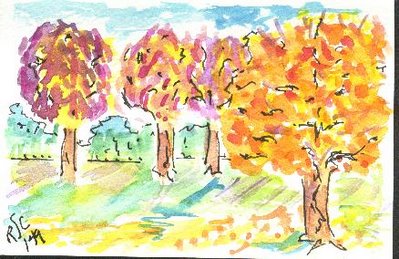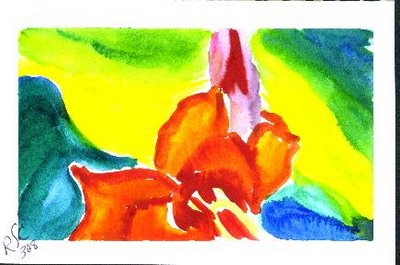
American Life in Poetry: Column 087
BY TED KOOSER, U.S. POET LAUREATE, 2004-2006
The first poem we ran in this column was by
David Allan Evans of South Dakota, about a couple
washing windows together. You can find that poem
and all the others on our website,
www.americanlifeinpoetry.org. Here Tania Rochelle
of Georgia presents us with another couple, this time
raking leaves. I especially like the image of the pair
"bent like parentheses/ around their brittle little
lawn."
Raking
Anna Bell and Lane, eighty,
make small leaf piles in the heat,
each pile a great joint effort,
like fifty years of marriage,
sharing chores a rusty dance.
In my own yard, the stacks
are big as children, who scatter them,
dodge and limbo the poke
of my rake. We're lucky,
young and straight-boned.
And I feel sorry for the couple,
bent like parentheses
around their brittle little lawn.
I like feeling sorry for them,
the tenderness of it, but only
for a moment: John glides in
like a paper airplane, takes
the children for the weekend,
and I remember,
they're the lucky ones--
shriveled Anna Bell, loving
her crooked Lane.
Reprinted from "Karaoke Funeral," Snake Nation Press,
2003, by permission of the author. Copyright (c) 2003
by Tania Rochelle. This weekly column is supported by
The Poetry Foundation, The Library of Congress, and
the Department of English at the University of
Nebraska-Lincoln. This column does not accept
unsolicited poetry.
******************************






